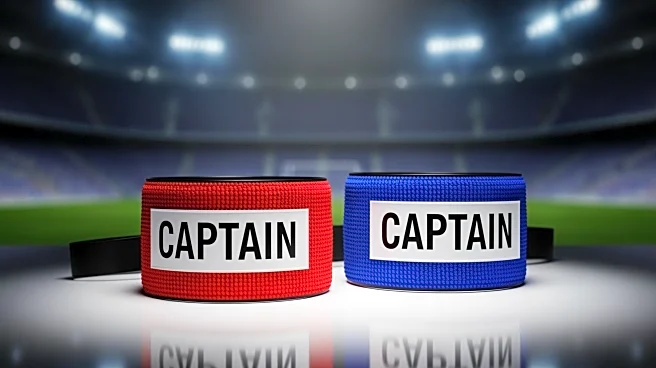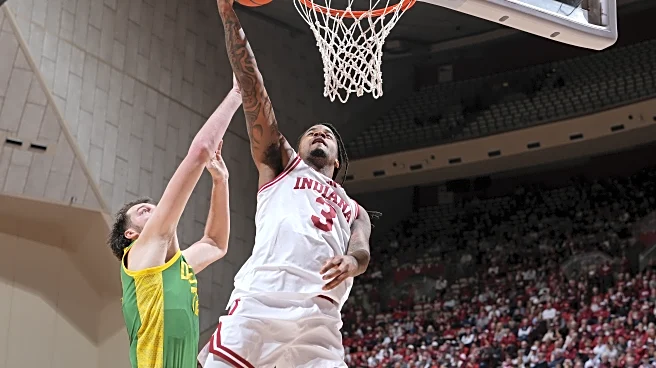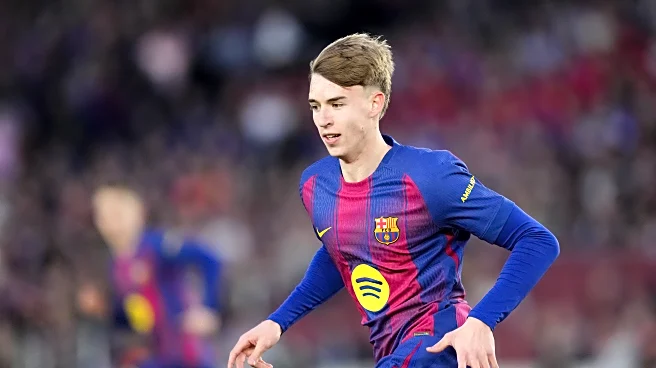What's Happening?
Wayne Rooney, former Manchester United and England forward, has expressed concerns over Liverpool's recent performance in the Premier League, attributing their four-game losing streak to a lack of leadership.
Rooney specifically pointed out Virgil van Dijk and Mohamed Salah, who have recently signed new contracts, but according to Rooney, have not effectively led the team this season. He noted that their body language has been different, which he believes impacts the morale of the team. Liverpool, the defending champions, are currently seventh in the league, trailing leaders Arsenal by seven points after a 3-2 loss to Brentford.
Why It's Important?
Rooney's comments highlight the critical role of leadership in sports teams, especially during challenging times. Liverpool's struggles could have significant implications for their title defense and overall standing in the Premier League. The performance of key players like Van Dijk and Salah is crucial not only for the team's success but also for maintaining fan support and morale. If these leadership issues persist, Liverpool may face difficulties in regaining their competitive edge, affecting their chances in domestic and international competitions.
What's Next?
Liverpool's management and players need to address these leadership concerns promptly to prevent further decline in performance. The team must strategize to overcome their current slump and regain their form. This may involve reassessing player roles, enhancing team dynamics, and possibly making tactical adjustments. The upcoming matches will be critical for Liverpool to demonstrate resilience and leadership, potentially influencing their trajectory for the rest of the season.
Beyond the Headlines
The situation at Liverpool underscores the broader challenges faced by sports teams in maintaining consistent performance and leadership. It raises questions about the impact of player contracts and expectations on team dynamics. Additionally, it highlights the psychological aspects of sports, where body language and morale can significantly affect outcomes. This scenario may prompt other teams to evaluate their leadership structures and player management strategies.











